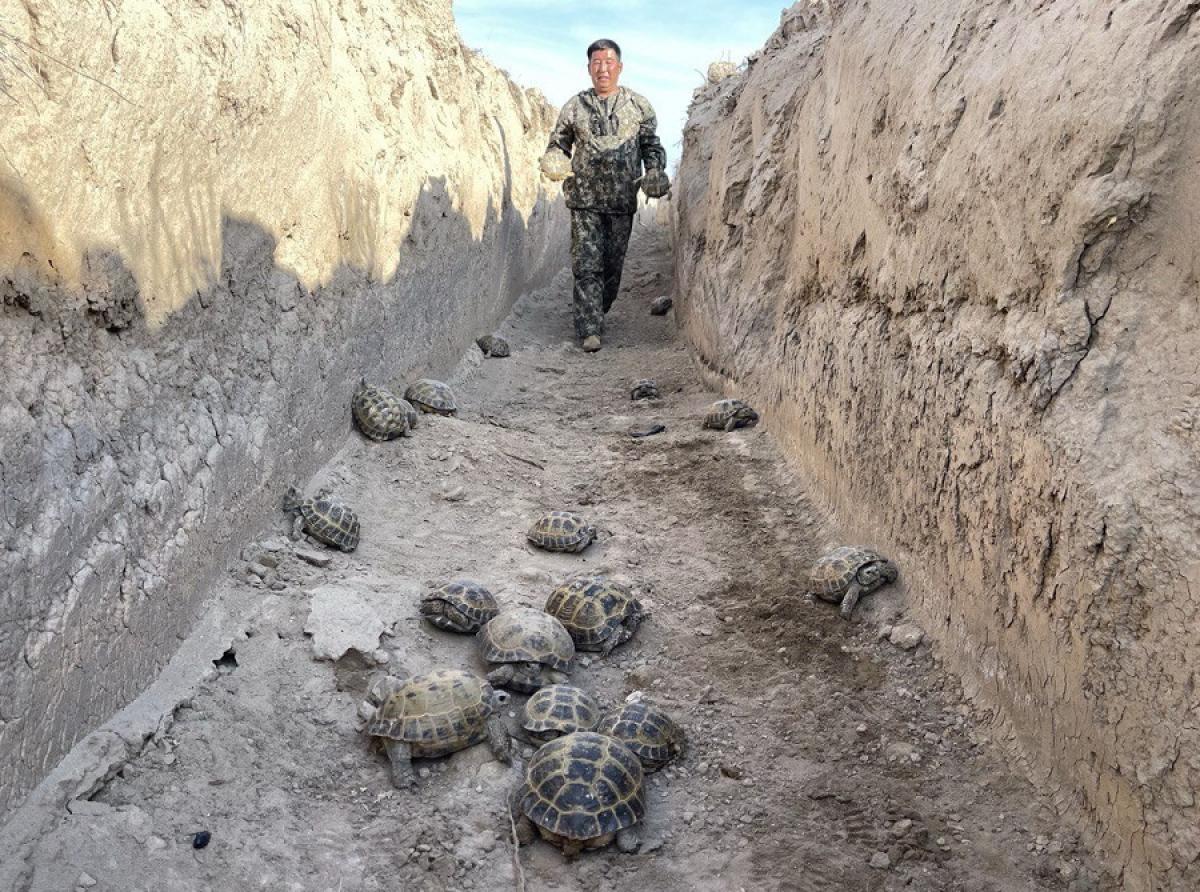Volunteers from the Tasbaqa private Nature Protection Fund have been saving turtles since 2023. Orda.kz. writes about how the Tasbaqa team pulled turtles and other animals out of trenches dug by local farmers. The expedition was called "Attention, turtle!".
"We found out that in the Turkestan region, the length of permanent trenches up to two meters deep, illegally equipped for fencing and protecting fields, is large and is estimated at hundreds of kilometers," says Yulia Tsaugg, director of the Tasbaqa Foundation.
Animals and reptiles have no chance to survive in these trenches. They can't get out of there, there's no food and water. According to activists, this problem has existed in many regions of Kazakhstan for many years, causes huge damage to nature, is discussed at various levels, including international, but it has not been solved.
The expedition members rescued more than a hundred reptiles from the trenches. Among the rescued, in addition to turtles, there were about a dozen large legless yellow-bellied lizards and one gray monitor lizard, the last two species are listed in the Red Book of Kazakhstan.
The word "Tasbaqa" is translated from Kazakh as turtle. Today, this is the only conservation fund in Kazakhstan , where they are engaged in the conservation of the Central Asian turtle, they are also called steppe turtles. The foundation's volunteers collect Central Asian turtles all over Kazakhstan for treatment, rehabilitation and return to the natural environment. The Foundation cooperates with the Institute of Zoology and law enforcement agencies.
The head of the foundation, Julia Tsaugg, often says in the media that slow-moving turtles become easy prey for poachers, they are sent abroad in large contraband batches or sold through advertising sites as pets, boxes and ashtrays are made from turtle shells.
The foundation conducts all current work on saving turtles at its own expense and with the help of volunteer staff," the journalists of the Ecostan portal tell. The foundation has a rehabilitation center for summer and winter maintenance, which can already accommodate 500 reptiles at the same time. About 200 turtles pass through this rehabilitation center every year. Last year, the foundation cured more than 100 turtles.
And 25 Central Asian turtles have recently returned to the wild. The volunteers released the reptiles into their native biotopes - the semi-deserts of the Almaty region. By the way, these turtles were seized from illegal trafficking last year. The live seizure was the result of monitoring of one of the trading platforms and the cooperation of the Tasbaqa foundation with the police. The turtles were in the care of the foundation all winter and returned home in April.
The message of eco-activists is simple: to help a turtle, you do not need to "save" it by taking it from the wild to your home. Desert landscapes are her home.
Photo by Julia Tsaugg


